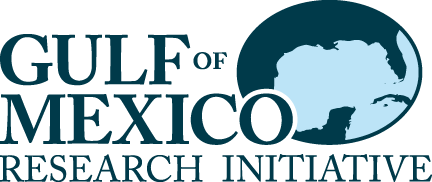Summary:
Biogeochemical cycles are important components of coastal ecosystem functions. Oil can directly or indirectly influence processes governing plant growth, microbial community structure, elemental cycling and ecosystem function. Crude oil in addition to direct effect on marsh macrophyte can restrict oxygen exchange at the sediment water interface and can also serve as an energy source for microorganism, which increases consumption of soil electron acceptors including O2, Fe2O3 and SO4 leading to more reduced conditions in soil and sediment that can indirectly affect plant growth and exchanges at sediment water interface in coastal nearshore and offshore water bottoms. These changes can induce a shift in microbial community structure which impacts mineralization, the process of releasing nutrients available for plant growth and microbial activity.
Biogeochemical processes are excellent candidates for efficient indicators of ecological integrity because they are potentially very sensitive. They are also likely to be highly reliable in the sense that ecological changes at such a fundamental level will affect all species utilizing the ecosystem. Changes at higher levels, such as a decline in populations of a suite of higher organisms may be due to factors which affect only a small portion of the biota, whereas changes in biogeochemical processes can result in comprehensive alteration of the biota. Although biogeochemical processes may be sensitive and reliable indicators of ecological integrity, their measurement can be time-consuming and expensive. We have found, however, that the concentrations of certain chemical substrates, intermediates, and end products of ecologically potent, biogeochemical processes do provide rapid and inexpensive indicators of the rates of those processes. Thus, these measurements, made in selected ecosystems in the Gulf where was impacted by oil, can be extremely efficient indicators of the ecological integrity of the entire ecosystem. To evaluate the Deep Water Horizon Spills (DWHS) impacts and successes of restoration efforts, it is critical to develop a fundamental understanding of the biogeochemical processes regulating the functions of the ecosystem. Since risk assessment is only as good as the information/knowledge available at the time, lack of understanding of the factors that affect the biogeochemical processes regulating the fate and transport of nutrients in estuaries decreases the certainty associated with any environmental assessment. For this work, we propose to focus on developing biogeochemical indicators of estuarine impacts resulting from DWHS and dispersants with an overall goal of understanding and quantifying the impact of oil and dispersed oil on soil/sediment biogeochemical processes at the community and ecosystem level.
Specifically, this research will address several questions. 1) What biogeochemical processes in wetland and offshore environment are most sensitive to oil impacts? 2) What chemical substrates, intermediates, or end products of these processes most accurately reflect their rates and thus are potential indicator variables for coastal suitability? 3) Do the distributions and central tendencies of biogeochemical indicators allow differentiation between natural spatial and temporal variability and change due to anthropogenic impact? 4) Can the indicator/process information developed for one area be extrapolated in space and time within the estuary and to other estuaries within the region?
